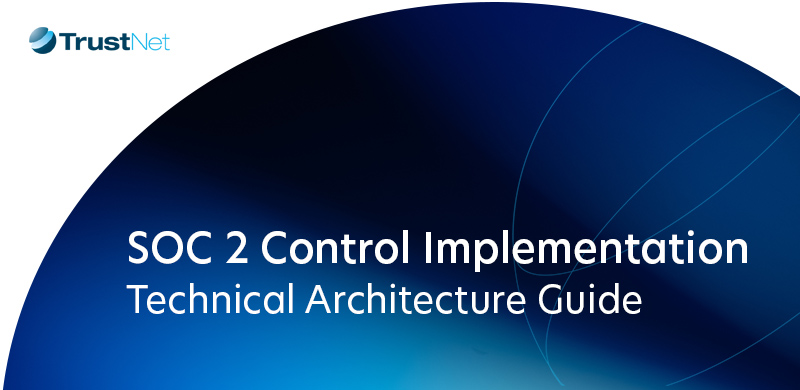Blog Decoding PCI DSS Merchant Levels: A Guide to Compliance
Decoding PCI DSS Merchant Levels: A Guide to Compliance

For one to ensure that payment card information remains secure, it’s crucial that you understand the PCI DSS merchant levels. Classified under these levels are the company’s activities, either grouped in relation to the volumes of its transactions or according to risks in data security.
The most important factor is to ensure that every business, either big or small, is compliant with the principles covering the security of confidential data. In this article, we will break down PCI Merchant levels and the significance of PCI DSS compliance.
Understanding PCI DSS Compliance Levels
As you probably already know, merchants processing credit cards are categorized by Visa, MasterCard, Discover, and American Express into categories that depend on the volume of the cards they process:
-
- Level 1 merchants process over 6 million Visa transactions annually across all channels;
- Level 2 merchants process between 1 and 6 million transactions across all channels;
- Level 3 merchants process 20,000 to 1 million e-commerce transactions annually. PCI level 3 certification is still necessary even for these smaller merchants.
- Level 4 merchants process fewer than 20,000 transactions or do not fall into the other level categories for some other reason. PCI certification is still necessary.
As with most other aspects of business, one size does not fit all when it comes to PCI service providers. Similar to merchants, they fall into different visa service provider levels according to credit card processing volume as follows:
-
- The PCI level 1 service provider processes, stores, or transmits more than 300,000 credit card transactions annually. They must file an annual Report on Compliance (ROC) with an Attestation of Compliance (AOC) from a Qualified Security Assessor (QSA).
- The PCI level 2 service provider offers data storage, transmits, or processes less than 300,000 credit card transactions yearly. To obtain PCI level 2 certification, an organization must complete a Self-Assessment Questionnaire (SAQ) annually. An internal scan, penetration test, and a quarterly network scan, as well as an attestation of compliance for service providers form, are also necessary.
The two PCI service provider levels help organizations understand their place in the compliance arena and the requirements they must satisfy.
For more on our PCI DSS compliance services, Click Here
Types of Merchants and Service Providers
Regarding card transactions, not all merchants and service providers are created equal. They come in various types, each with unique roles:
Types of Merchants
— E-commerce Merchants
-
- Operate online stores where customers complete transactions using credit or debit cards.
- Must ensure secure transmission and storage of cardholder data over the Internet.
— Brick-and-Mortar Merchants
-
- Traditional physical stores where card transactions are processed in person.
- Retail stores, eateries, and service establishments like hairdressers and car repair shops are a few examples.
— Mail/Telephone Order (MOTO) Merchants
-
- Process payments via mail or phone orders.
- Require secure methods for capturing and storing cardholder information received outside of face-to-face interactions.
Types of Service Providers
— Payment Gateways
- Facilitate online transactions between customers and merchants.
- Responsible for transmitting payment data securely from the customer to the acquiring bank.
— Payment Processors
- Handle transaction processing on behalf of merchants.
- Ensure that payment information is correctly routed and funds are transferred appropriately.
— Hosting Providers
- Offer infrastructure and hosting services for e-commerce websites.
- Need to maintain secure environments to protect hosted cardholder data.
— Managed Service Providers (MSPs)
- Offer IT outsourced services, such as network maintenance, security management, and monitoring.
- Contribute to keeping cardholder data environments secure.
— Third-Party Vendors
- Provide extra specialized services such as encryption, tokenization, and fraud detection.
- Must adhere to PCI DSS requirements to ensure they don’t compromise security when integrating with merchant systems.
PCI Compliance Requirements
Keeping cardholder data safe and ensuring your company complies with industry standards depend on meeting these criteria.
Cardholder Data Security
First and foremost, PCI compliance is all about protecting cardholder data. Here are some key practices you should follow:
-
- Encryption: Always encrypt cardholder data before storing or transmitting it.
- Restricted Access: Limit access to cardholder data to only those who need it to do their jobs.
- Regular Monitoring: Keep a close eye on all access to network resources and cardholder data.
PCI DSS Standard and Requirements
The Payment Card Industry Data Security Standard (PCI DSS) sets out a series of requirements that businesses must follow. These include:
-
- Building and maintaining a secure network: Use firewalls and strong passwords.
- Protecting cardholder data: Encrypting it and ensuring it’s stored safely.
- Maintaining a vulnerability management program: Regularly update and patch systems to protect against vulnerabilities.
- Implementing strong access control measures: Restrict physical and digital access to cardholder data.
- Monitoring and testing networks: Regularly test security systems and processes.
- Maintaining an information security policy: Have a policy addressing information security for employees and contractors.
Assessment Questionnaires and Attestation of Compliance Forms
To prove your compliance, you’ll need to complete Self-Assessment Questionnaires (SAQs) and Attestation of Compliance (AOC) forms. These documents help you—and the PCI Security Standards Council—confirm that you’re meeting all necessary requirements. Here’s what you should know:
-
- Self-Assessment Questionnaires (SAQs): These are tailored to your specific merchant level and transaction methods. Think of them as a checklist to ensure you’re covering all bases.
- Attestation of Compliance (AOC) Forms: Once you’ve completed your SAQ, you’ll fill out an AOC form to formally attest that your business complies with PCI DSS requirements.
Following these suggestions and paying close attention to safety measures, a business can protect its clients’ data and comply with laws and regulations.
Importance of PCI Compliance
Protecting cardholder data and avoiding security breaches depend heavily on PCI compliance. Here’s why it matters:
-
- Protection Against Hackers: You may create strong defenses against cyberattacks by putting PCI DSS standards into practice.
- Minimizing Risk: By encrypting sensitive data and regularly monitoring your systems, you significantly reduce the risk of data theft.
- Peace of Mind: It pays to know that you’re taking all necessary precautions to protect your customers’ information.
Maintaining Trust with Customers and Payment Card Brands
Trust is the cornerstone of any successful business. When customers hand over their payment information, they expect it to be handled securely. Here’s how PCI compliance helps maintain that trust:
-
- Customer Confidence: When customers know you comply with PCI DSS, they’re more likely to trust you with their payment information.
- Brand Reputation: Major credit card brands like Visa, Mastercard, and American Express require merchants to be PCI compliant. Failing to do so can result in losing the ability to process these cards.
- Business Relationships: Banks and other financial institutions look favorably on businesses that adhere to PCI DSS, which can lead to better terms and partnerships.
Avoiding Penalties and Fines from Banks and Major Credit Card Companies
Here’s a quick breakdown of the financial repercussions:
-
- Fines: Major credit card companies can impose fines on non-compliant businesses. These fines can range from $5,000 to $100,000 per month until compliance is achieved.
- Higher Transaction Fees: Non-compliant merchants may face increased transaction fees imposed by banks.
- Legal Costs: In the event of a data breach, non-compliant businesses may also incur legal costs, settlements, and additional compensation to affected customers.
Staying PCI compliant not only protects your data but also shields your business from potentially crippling financial penalties.
PCI Security Standards Council (PCI SSC)
Major payment card firms such as Visa, Mastercard, and American Express established the PCI Security Standards Council (PCI SSC) to develop and oversee the PCI DSS. Here’s what they do:
-
- Setting Standards: The PCI SSC establishes and maintains security standards for card transactions.
- Providing Guidance: They offer resources and support to help businesses understand and implement these standards.
- Encouraging Cooperation: The council works with various partners, such as financial institutions, service providers, and shops, to enhance payment security measures.
PCI DSS Standard and Updates
The PCI DSS changes and adapts to meet emerging risks and technological advancements. Here’s how it stays relevant:
-
- Regular Updates: The PCI SSC periodically reviews and updates the PCI DSS to ensure it addresses the latest security challenges.
- Feedback Loop: The council accepts suggestions and recommendations from experienced industry members, businesses, and security personnel in an effort to improve the standards consistently.
- Version Releases: Each new version of the PCI DSS includes updated requirements, best practices, and clarifications to help businesses avoid potential security threats.
PCI Compliance Journey
— Determine Your Compliance Stage
Assess the stages that you are at with regard to the PCI compliance policy.
— Consider Hiring a Сonsultant
Look for renowned PCI compliance advisors. TrustNet, a PCI Qualified Security Assessor (QSA), is among the most notable organizations in this field.
— Implement Robust Security Procedures
Any measures aimed at decreasing data exposure threats would be advantageous to both your company and its clients.
— Understand Compliance Requirements
Comprehending what PCI compliance entails for service organizations and the steps to be followed assists in making the journey effective and rewarding.
— Continuous Assessment and Monitoring
Evaluate and supervise your security controls constantly so that there will be no gaps resulting from newly developed threats.
— Regular Employee Training and Awareness
One of the best ways to protect the company from any security breach is through its employees. Regular training sessions help them learn about the most recent risks to security and best practices.
— Staying Up to Date with PCI Requirements
Staying current ensures that compliance efforts are always relevant and in accordance with best practices. In addition, compliance with PCI standards helps enhance brand loyalty in the market through trust-building efforts.
Securing Your Business with PCI Compliance
Let’s quickly recap why PCI compliance is crucial for your business:
-
- Data Security: Protecting cardholder data from cyber threats and breaches.
- Customer Trust: Build confidence and maintain strong relationships with your customers and payment card brands.
- Financial Protection: Avoid hefty fines and penalties from banks and credit card companies.
PCI compliance might feel overwhelming, but once you’ve taken the necessary security measures for your systems and your customer’s personal information, you’ll be fulfilling legal requirements and positioning your company as a reliable business entity in the market.
Contact Our Experts today.




